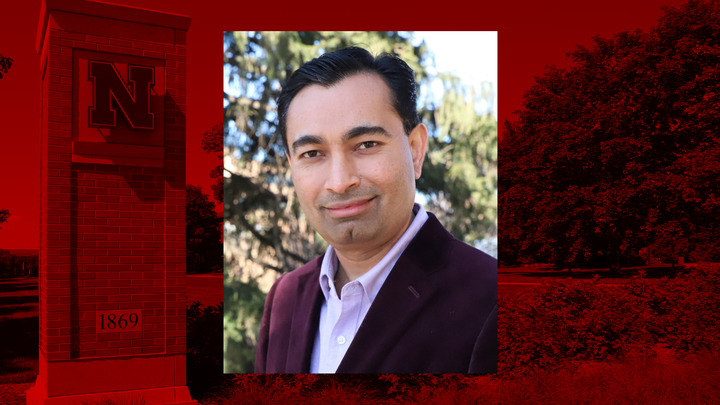Amit Jhala, an associate professor and extension weed management specialist in agronomy and horticulture at the University of Nebraska–Lincoln, has been awarded a Superior Paper (Information Technology, Sensors, & Control System) from the American Society of Agricultural and Biological Engineers for the paper titled “Evaluation of Soil Moisture Sensing Technologies in Silt Loam and Loamy Sand Soils: Assessment of Performance, Temperature Sensitivity, and Site- and Sensor-Specific Calibration Functions.”
Each ASABE technical community selects up to 5% of the papers published by their community for paper awards based on the articles’ timeliness, fundamental value, originality and benefits to society, as well as for the quality of writing.
Another UNL author of this paper with Jhala included Suat Irmak, former Harold W. Eberhard Distinguished Professor of Biological Systems Engineering. This accomplishment demonstrates their significant contributions to research on soil moisture sensing technologies.
“Reliable soil moisture information is vital for optimal irrigation management, farm-level agronomic decision-making, hydrologic studies, and cropping systems modeling,” Jhala said. “A wide range of soil moisture sensing technologies is commercially available, but their performance must be evaluated for different conditions of use.”
In this research, Jhala and team investigated nine soil moisture sensors based on time-domain reflectometry, capacitance and electrical resistance principles in production field conditions with two installation orientations, i.e., vertical and horizontal, in two soils — silt loam and loamy sand — and two growing seasons. Performance parameters deduced from the datasets revealed that sensor type and soil type significantly affected the soil moisture sensor performance under factory calibration, however, sensor installation orientation did not. Thus, the sensors were only evaluated based on their performance in horizontal orientation in both soils. Precision and accuracy were considered targets to assist in appropriate sensor selection. To improve sensor accuracy, site-specific calibration functions were developed and validated using independent datasets.
Winning Paper Award authors will be formally recognized and presented with a Superior Paper Award certificate at the ASABE International Meeting in July in Omaha.




